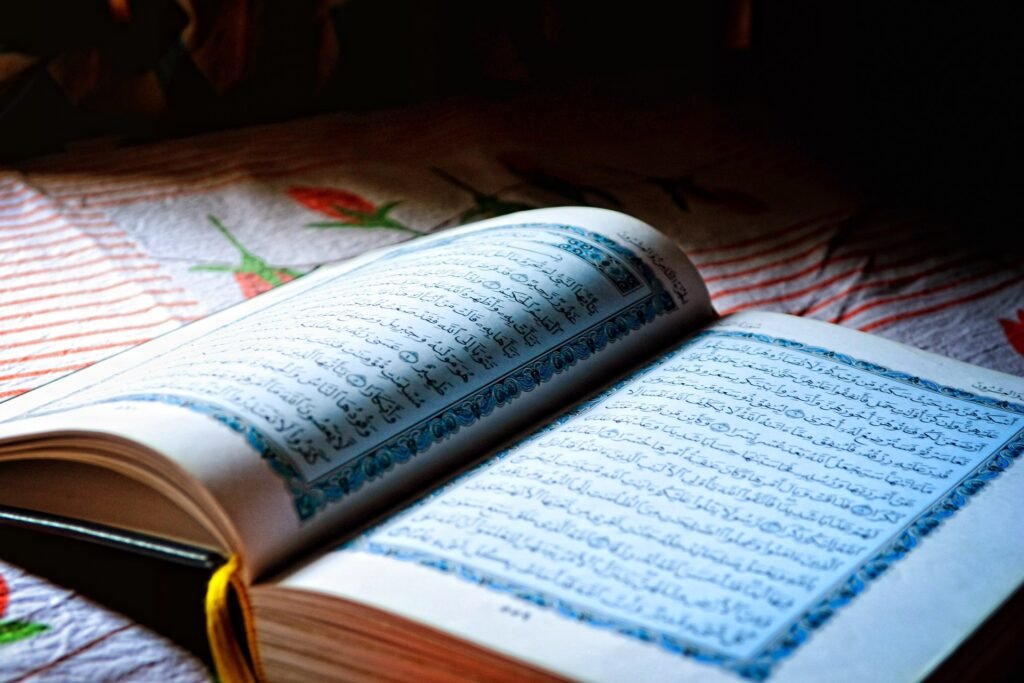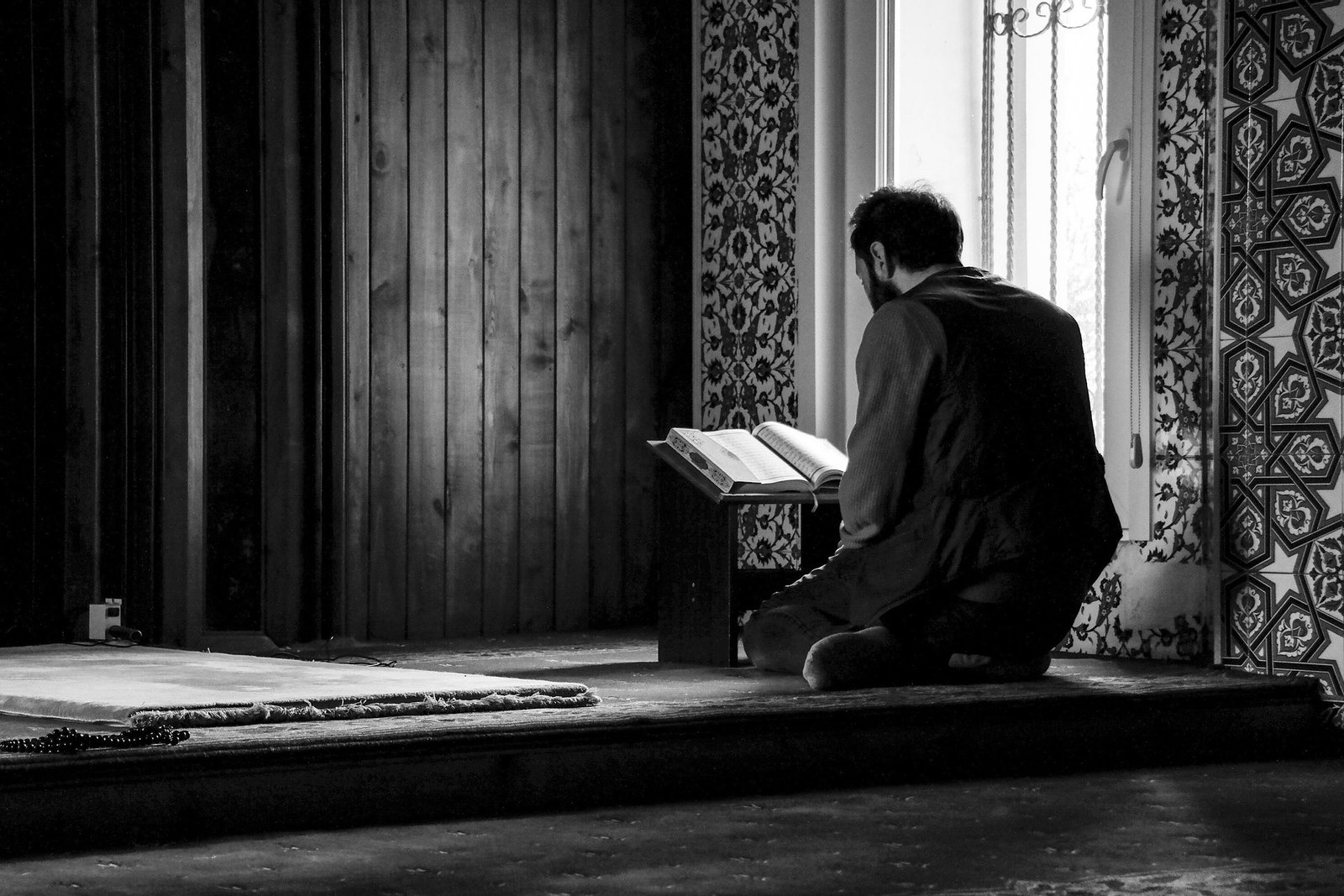
Introduction
From ancient temples in India to grand cathedrals of Europe, aromatic incense has wafted through human history, leaving an indelible mark on our collective spiritual practices. For each culture and religion, these fragrant wisps of smoke hold unique stories and significance. In the Islamic world, burning incense transcends pleasant aromas; it interweaves with traditions, teachings, and moments of introspection.
Islam, with its rich tapestry of customs and profound spiritual ethos, has cherished the art of incense burning for centuries. Whether in a household along Cairo’s bustling streets or a quiet corner in Mecca, the scent of incense often accompanies prayers, celebrations, and moments of reflection. But why do Muslims burn incense? Let’s embark on a journey through time, trade routes, and theology to unearth the essence of incense in Islamic culture.
Historical Origins of Incense in Islamic Culture
The Fragrant Trade Routes
Long before globalization became a buzzword, intricate trade networks crisscrossed continents, connecting civilizations and facilitating the exchange of goods, ideas, and cultures. Among the most famed of these ancient pathways was the Silk Road, but equally significant was the Incense Route.
Originating in the southern parts of the Arabian Peninsula, the Incense Route served as a nexus for transporting precious resins like frankincense and myrrh to regions as distant as the Mediterranean. In the arid lands of ancient Arabia, incense wasn’t merely a luxury; Arabs prized it as a symbol of affluence, a cherished commodity that held both material and spiritual value1.
Prophetic Traditions and Incense
The relationship between Islam and incense traces back to the very foundation of the religion. The Hadiths—records of Prophet Muhammad’s (PBUH) sayings and actions—mention pleasant scents and the significance of maintaining personal hygiene. While no direct command exists to use incense, the emphasis on creating a fragrant environment, especially during worship, remains evident2.
Prophet Muhammad (PBUH) reportedly said, “The angels are harmed by the same things that harm the children of Adam.” This statement includes offensive smells.
Devout Muslims often maintain a clean and fragrant ambiance, particularly during prayers. They believe that angels, always present, are attracted to pleasant aromas and repelled by foul ones. This tradition has cemented the place of incense in many Islamic households and communities.
Symbolism and Significance of Incense in Islam
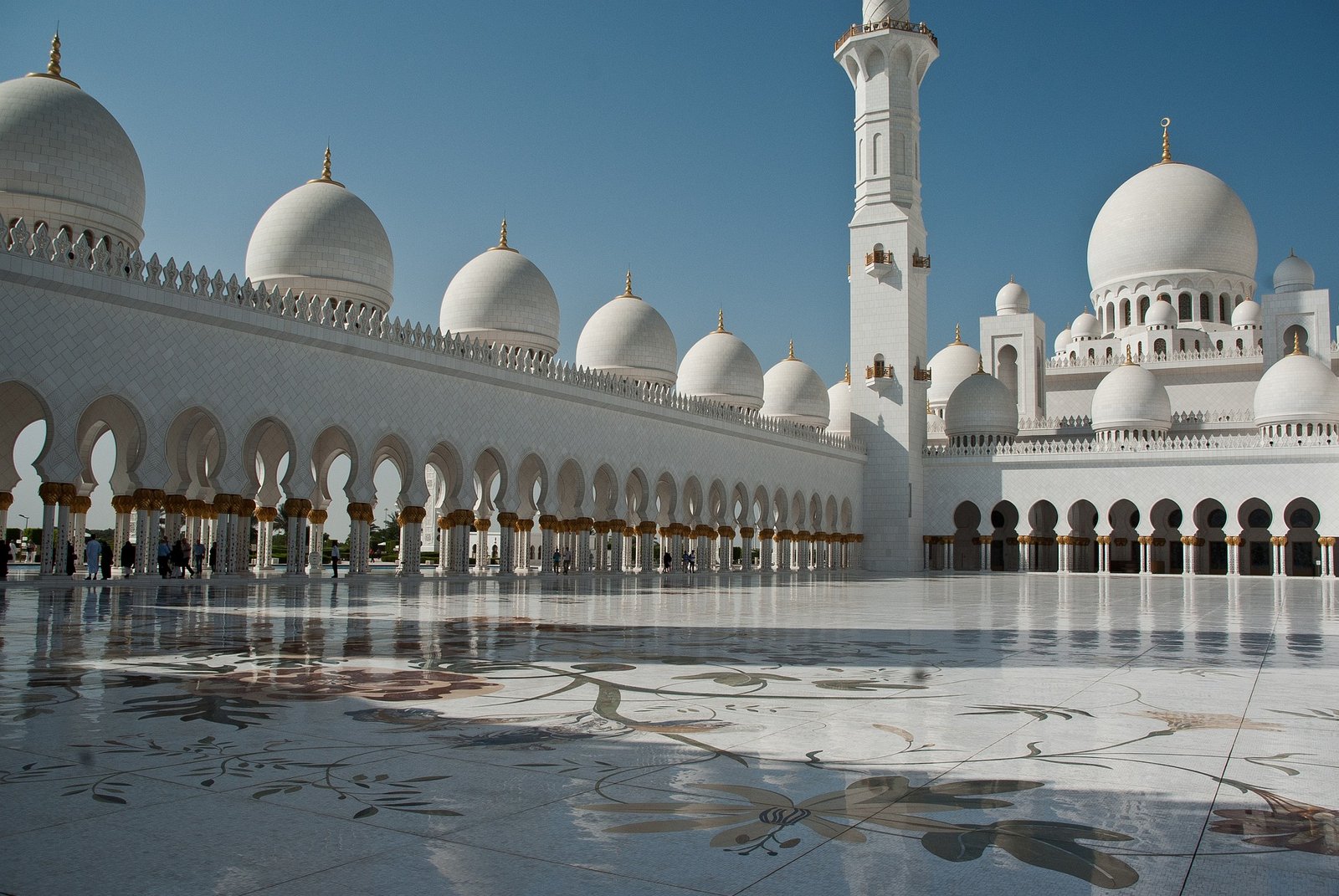
Purification and Blessings
To understand the ritualistic burning of incense in Muslim households, we must look beyond the physical act and delve into its symbolic meanings. At its core, the rising smoke symbolizes a purifying force. Just as water cleanses the body, many Muslims believe the fragrant smoke purifies the environment, driving away negative energies and inviting positive vibrations3.
Moreover, a deeply held belief exists that pleasant aromas attract angels, God’s ethereal messengers. As they descend, they bring blessings, peace, and guidance. The act of burning incense is not just about infusing the air with a delightful scent; it creates a celestial bridge, facilitating a stronger connection between the mortal realm and the divine. This belief finds support in several Islamic texts and traditions that emphasize the importance of cleanliness and pleasant environments for spiritual well-being.
For a deeper exploration of the spiritual benefits of incense across different traditions, visit our article on the spiritual benefits of burning incense.
Enhancing Moments of Reflection
Incense plays a pivotal role during personal moments of reflection, meditation, or Quranic recitation. As the fragrant tendrils rise and envelop the room, they create an ambiance of serenity and focus, allowing individuals to delve deeper into their spiritual pursuits4.
During the last third of the night—a time considered especially auspicious for prayers—or during the serene moments following dawn prayers, many Muslims light incense. The calming presence of incense accentuates the spiritual experience, creating a sensory environment that facilitates connection with the divine. The practice isn’t mandatory but has evolved as a cultural enhancement to worship and reflection.
Scientific studies have also begun to validate what practitioners have known for centuries: certain scents can induce a state of calm and heightened awareness, making them ideal companions for meditation and introspection. This blend of traditional wisdom and modern understanding further underscores the value of incense in spiritual practices.
Popular Types of Incense in Islamic Traditions
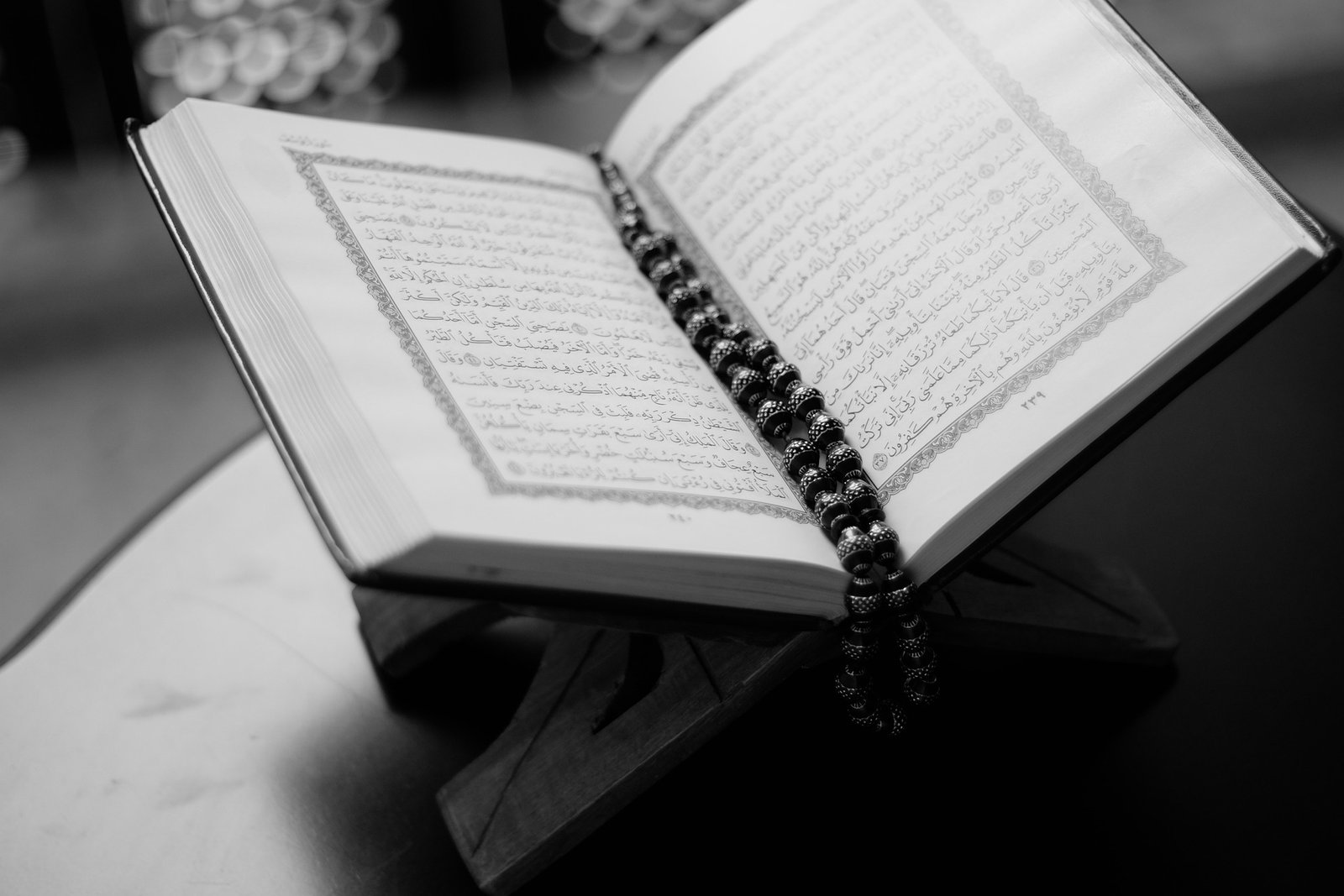
Oud and Bakhoor
One cannot discuss incense in Islamic culture without paying homage to Oud (Agarwood), the resinous heartwood of the Aquilaria tree. Often termed “liquid gold,” Oud possesses an intoxicating and rich aroma that has enamored sultans, poets, and common folk alike for centuries5. The profound depth of its scent, evoking layers of musk, wood, and spice, makes it an integral part of many Muslim households, especially during special occasions.
Bakhoor, on the other hand, is a concoction of fragrant chips or bricks. Artisans combine Oud, sandalwood, essential oils, and aromatic resins to create Bakhoor. When burned on charcoal, it produces thick, fragrant smoke. People often associate its scent with celebrations and welcoming guests. It also sets a tranquil mood for relaxation or worship.
For those interested in the mysteries and allure of Oud, our article on The Allure of Oud in Middle Eastern Culture offers a deep dive into its cultural significance and historical relevance.
Other Fragrant Offerings
Beyond Oud and Bakhoor, several other aromatic substances have earned special places in Islamic traditions6.
Frankincense (Luban)
Harvested from Boswellia trees native to the Arabian Peninsula and Horn of Africa, has been used in religious and ceremonial contexts across the Middle East for millennia. Its clean, balsamic scent with citrus notes is particularly associated with purification practices in many Muslim communities.
Myrrh
Another ancient resin with historical significance across Abrahamic faiths, continues to be used in some Islamic cultures, particularly for its traditional medicinal properties. Archaeological evidence suggests that both frankincense and myrrh were traded along routes that connected early Muslim communities with Eastern Africa, India, and beyond.
Sandalwood
With its sweet and woody scent, is cherished for its calming properties in many Islamic traditions. Particularly popular in South and Southeast Asian Muslim communities, sandalwood is often incorporated into prayer bead (tasbih) manufacturing and is burned as incense during religious gatherings.
Musk
Often referenced in Islamic texts including Hadith literature, is prized for its rich and warm aroma. Traditionally derived from the musk deer (though ethical synthetic alternatives are now widely used), it has been described in some Islamic traditions as “the best of all perfumes” and is frequently mentioned in descriptions of paradise in religious texts.
Explore our comprehensive Incense Scent Library to discover the unique properties and uses of various fragrant offerings.
Modern Adaptations and Trends
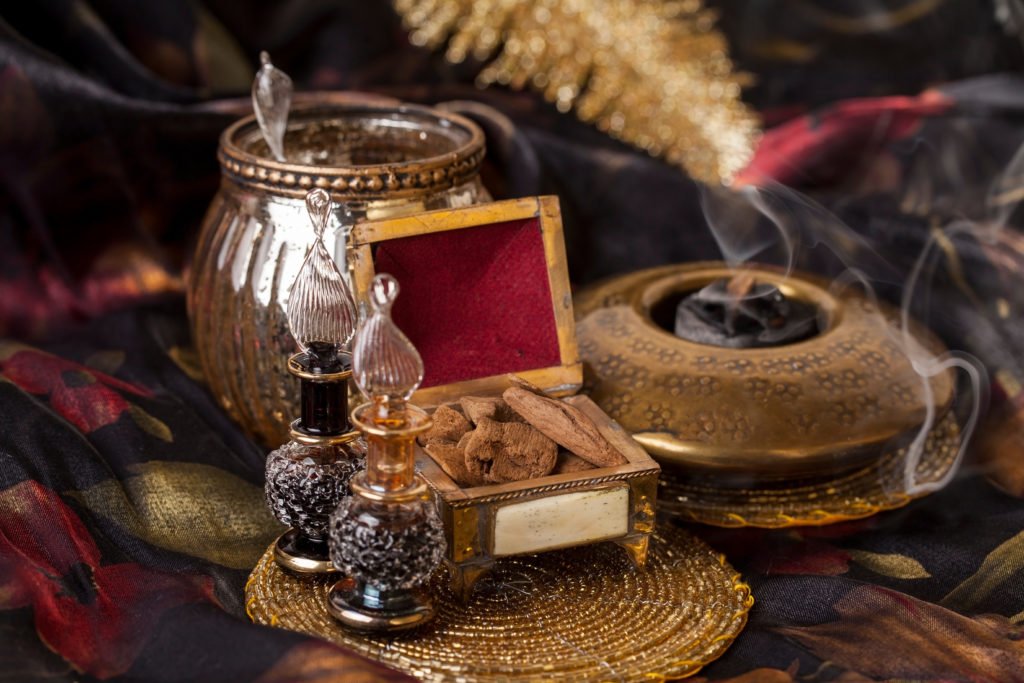
Incense in Contemporary Muslim Homes
As lifestyles evolve and traditions blend with modern aesthetics, the way Muslim homes use incense has transformed. Modern incense burners, merging functionality with artistry, have become statement decor pieces. Electric burners offer a smoke-free alternative to traditional charcoal burners, making the experience more accessible to those living in apartments or smaller spaces7.
Yet, even with these modern adaptations, the essence remains unchanged. The act of burning incense still deeply roots itself in spirituality, reflection, and the celebration of life’s significant moments. What has changed is the convenience and aesthetic appeal, making the tradition more adaptable to contemporary lifestyles.
Additionally, the global interest in aromatherapy and mindfulness has brought renewed attention to incense burning, with many non-Muslims also embracing the practice for its calming effects and ambiance-enhancing properties. This cross-cultural appreciation speaks to the universal appeal of aromatic traditions.
Environmental and Health Considerations
In the age of information and growing environmental consciousness, an increasing shift has occurred towards sustainable and health-friendly incense options. Artificially fragranced products and additives now give way to natural alternatives. The emphasis focuses on ensuring that incense not only elevates the soul but also shows kindness to the environment and user well-being8.
Studies have highlighted potential health risks associated with long-term exposure to certain types of incense smoke. In response, many manufacturers now produce low-smoke or smoke-free alternatives. Similarly, the sourcing of incense materials, especially rare ones like Oud, has raised environmental concerns. This awareness has led to initiatives promoting sustainable harvesting and cultivation practices.
For those concerned about the cleansing properties while minimizing health risks, our guide on the best incense for cleansing offers valuable insights.
Conclusion
The tradition of burning incense in Muslim culture represents a beautiful amalgamation of history, spirituality, and sensory delight. This practice transcends time, bridging the ancient with the contemporary, the physical with the ethereal. As the world continues to change and traditions adapt, the essence of incense in Islam remains a testament to the faith’s depth, diversity, and enduring allure9.
Through the fragrant wisps of incense smoke, Muslims connect with a tradition that spans generations, finding in its aromatic embrace a link to their spiritual heritage and a means to enhance their religious experiences. The practice, while not mandated by religious texts, has become a cherished cultural expression that enriches the spiritual landscape of Islamic communities worldwide.
As we navigate the complexities of modern life, such traditions remind us of the importance of sensory experiences in our spiritual journeys, offering a moment of pause, reflection, and connection in an increasingly fast-paced world.
References
- King, E. (2018). Trade Routes of the Ancient World: How Incense Shaped Civilizations. Oxford University Press.
- Al-Bukhari, M. (9th century). Sahih al-Bukhari, Hadith 5587.
- Rahman, F. (2019). Symbolic Practices in Islam: From Incense to Prayer. Islamic Studies Journal, 45(2), 112-128.
- Ahmed, S. (2021). The Role of Sensory Experiences in Islamic Spirituality. Journal of Islamic Studies, 32(1), 78-95.
- Al-Hashimi, M. (2020). Oud: The Scent of Royalty in Islamic Culture. Middle Eastern Cultural Studies, 28(3), 201-217.
- Ibrahim, L. (2017). Fragrant Traditions: A Journey Through Islamic Aromatics. Journal of Cultural Studies, 15(4), 320-335.
- Khan, R. (2022). Modern Adaptations of Traditional Practices in Muslim Households. Contemporary Islamic Studies, 10(2), 145-163.
- Malik, A., & Johnson, P. (2023). Health Implications of Traditional Incense Burning: A Review. Journal of Environmental Health, 48(3), 267-280.
- Al-Farsi, H. (2021). The Enduring Legacy of Islamic Aromatic Traditions. Islamic Heritage Journal, 14(1), 56-72.


